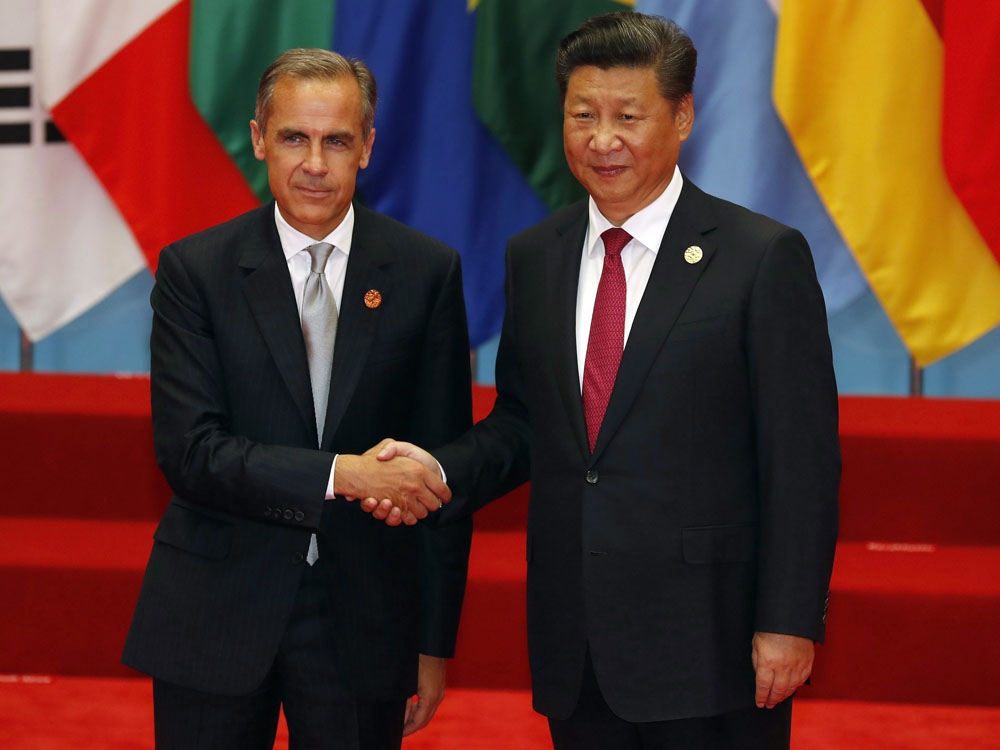A high-stakes meeting looms. Prime Minister Mark Carney prepares to face Chinese President Xi Jinping in South Korea, marking the first formal encounter between leaders of the two nations since 2017. The air is thick with unresolved tensions, a legacy of diplomatic fractures and accusations that have defined the Canada-China relationship for years.
The previous thaw abruptly ended with the arrest of a Chinese tech executive on American request, triggering a retaliatory detention of two Canadians. These detentions, deemed arbitrary by Ottawa, cast a long shadow, culminating in a public confrontation at the G20 where President Xi accused Canada of leaks to the media – a moment of raw, unfiltered anger.
Tariffs now form a significant barrier. Canada, mirroring the U.S., imposed hefty levies on Chinese electric vehicles, prompting China to respond in kind with tariffs on Canadian canola, seafood, and pork. A debate rages within Canada: should these electric vehicle tariffs be lifted, or are they vital for protecting the domestic auto industry amidst a global shift towards green technology?

Beyond trade, the agenda is complex. Carney intends to explore a wider range of issues, including environmental collaboration. China, despite being a major emitter, is also a leader in clean technology, and previously partnered with Canada on a crucial biodiversity summit, even amidst strained relations.
However, a dark undercurrent persists. A recent federal inquiry unequivocally stated that China is the most active perpetrator of foreign interference targeting Canada’s democratic institutions. The report detailed sophisticated cyber threats and disinformation campaigns, leading Carney to label China as Canada’s biggest security threat.
The human cost of this fractured relationship is stark. Four Canadian citizens have been executed by China, and others remain imprisoned, including Robert Schellenberg, languishing on death row. Calls are growing for Ottawa to grant honorary citizenship to those detained under Hong Kong’s national security law, a plea for recognition and support.
The issue of Taiwan adds another layer of complexity. While adhering to its “One China” policy, Canada has deepened ties with Taiwan, participating in naval exercises that signal the region’s international status – actions that deeply irritate Beijing. A delicate balance must be struck.
The Arctic is emerging as a new arena for competition. China’s self-proclaimed “near-Arctic state” status and ambitions for shipping routes and resource development are viewed with caution. Canada will cooperate on global issues like climate change, but will carefully scrutinize any Chinese research requests within its waters.
A recent shift in rhetoric has seen Canada’s Foreign Affairs Minister declare China a “strategic partner,” a move that surprised many given previous assessments labeling Beijing a “disruptive global power.” This change aims to establish a dialogue, even on points of deep disagreement.
Carney and Xi are expected to discuss the future of the global order, including reforms to the United Nations and debt relief for developing nations. Both leaders profess a commitment to international rules, yet their interpretations of those rules diverge dramatically.
Beijing signals a desire for a reset, emphasizing “mutual respect” and the potential for cooperation despite differing systems. A willingness to “overcome disruptions, rebuild mutual trust” is expressed, hinting at a possible path forward.
Looking ahead, Carney is anticipated to visit China next year for the APEC summit, continuing a decades-long tradition of Canadian prime ministerial participation. This meeting represents a critical opportunity – a chance to navigate a treacherous landscape and forge a new, albeit cautious, chapter in the Canada-China relationship.





